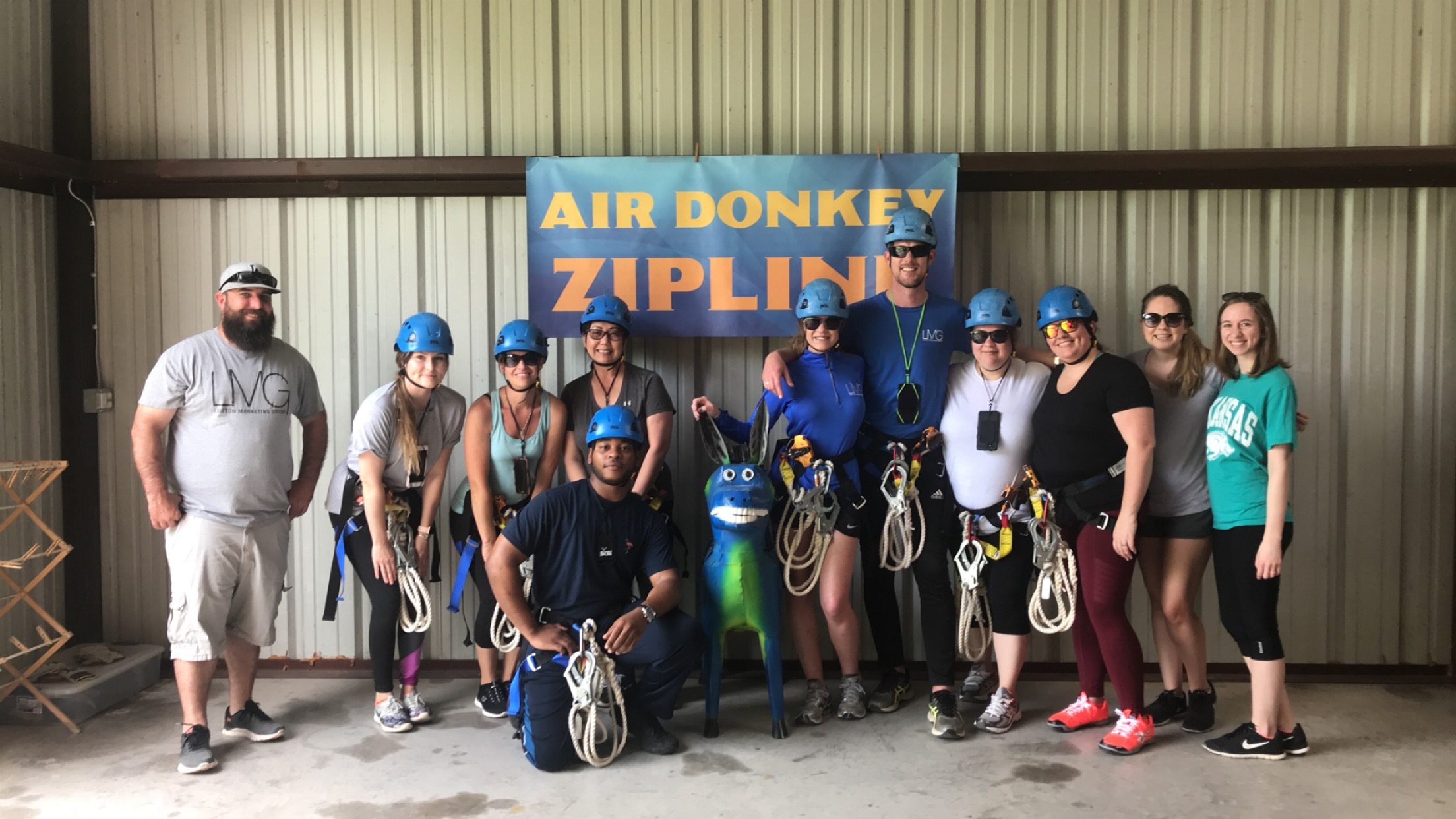
Nurturing Self Improvement in Your Business & Team
When my husband Coby and I started our company in 2012, we knew we wanted to create more than a job for ourselves and our employees. We wanted to nurture an environment where our team could see themselves retiring—where they could connect, grow, and find lasting purpose in their work. But even in a team of incredible people, personal growth doesn’t happen organically. It’s a skill you have to foster like any other: with intention, consistency, and accountability. We view our workplace like a sports team, and as coaches, Coby and I have the responsibility to foster personal development in our players. Specialized skills, communication, team mechanics—these are all elements that coaches work to improve in their players—why should our workplace be any different?
If you want an incredible team that works hard, plays well together, and accomplishes what other teams can’t, you have to help them grow. Part of how we do that here at LMG is through our weekly Character Development sessions. Each week, Coby sends an assignment to our team related to personal and professional development—it might be a Ted Talk, a chapter from a book we’re reading together, or an article. (We’ve studied everything from time management to breathing techniques.) Everyone reviews the material, and at the end of the week, our team of 13 splits into two groups to discuss the topic for 30 minutes. We’re all busy, but unless it’s a holiday or there is something else big going on, it’s non-negotiable for our team to participate, and we believe that’s part of what makes it successful. We want our team to consistently pursue growth at every level, and personal development is just as important as professional achievement. Not only does this meeting help our team members grow as people, but it also gives everyone a chance to see each other face-to-face and catch up. Since about half of our team is remote, this is a great chance for people to connect outside of email and Slack messages.
If you’re looking to help your own team connect and grow both personally and professionally, I’d highly recommend your own version of Character Development. Here’s why…
Get Out of a Rut
How often do you take a moment to stop and evaluate how your career is going? Or how stressed you are? Or whether your current method of time management is serving you? Without being intentional, it can be easy to get stuck in a rut of unproductive or unhealthy habits. If you’ve identified something that is damaging your team’s productivity or morale, or that several of your team members struggle with, Character Development sessions can be a helpful way to address those kinds of difficulties without blaming someone or calling them out as a problem. Instead, you can frame it as an opportunity to grow as individuals and as a team.
When you make time for you and your team to focus on just a small aspect of personal development on a regular basis, you open a world of opportunity to break bad habits before they become big problems—for your people and your workplace.
Learn to Grow
One of the greatest strengths a person can have is self-awareness, because only after you realize who you are and how you operate can you take a step toward improvement. Setting aside time each week forces us to analyze where our strengths and weaknesses are—and when we do that, we’re able to challenge ourselves and each other to get better.
Collaborate
Not only does our weekly Character Development session encourage us to listen to and read expert advice, but our weekly discussions give us a chance to bounce our ideas off of one another. Oftentimes, more than one person struggles with the same habit or wants to achieve a similar goal—whether the topic relates to time management, stress, or a junk food habit—and we’re able to share ideas and learn from each other when we discuss what we’ve read or watched.
Open the Lines
If you’ve ever been in a job where you had an annual performance review, you know how frustrating and confusing it can be if that’s the only time your boss (or yourself) takes to analyze your progress and communicate how you can do better. Of course, we don’t use our Character Development to unpack everyone’s faults in front of each other—but it does give everyone a chance each week to share where they might be struggling or what they need help with, even in a small way. We make it a point to be open and honest in our CD sessions, whatever the topic, and this serves to foster a culture of understanding and connection. No one judges each other, and it reinforces the idea that we truly do want our team to succeed—not just for our sake as a company, but because we care about them as people. Our LMG team really is our family, and that means we grow together, celebrate together, and even hurt together.
Learn More About Each Other
If you’ve had employees for any amount of time, you know that everyone communicates a little differently. People have their own learning styles, and methods that help one person might be incredibly stressful to another. Some people excel working autonomously; others like consistent feedback and accountability. Discussing personal development gives you a chance to get to know your people better—what makes them tick, what matters to them, and when they’re at their best (and worst). And when you know your team members’ strengths and weaknesses, you can leverage that information for the growth of the individual and the strength of your team as a whole.
Get Started
Simply put, if you want a stronger team, feed your players. Feed every part of them—mind, body, and spirit—with positivity. Then inspire them to do the same outside of work. Listen to each other, encourage each other, and be open to growth in your own life, personally and professionally. If you’re ready to start your own Character Development sessions with your team, here are just a few of the resources we’ve used to get you started:
Videos:
- The Happy Secret to Better Work, by Shawn Achor
- How to Stop Screwing Yourself Over, by Mel Robbins
- The Things I Wish I Knew When I Was Younger, by Simon Sinek
- How to Make Stress Your Friend, Kelly McGonigal
- The Art of Energy Management, by Craig Groeschel
Books:
- Getting Things Done, by David Allen
- Be Our Guest, a Disney Institute Book
- Atomic Habits, by James Clear
- The Case Against Sugar, by Gary Taubes
- The Compound Effect, by Darren Hardy
If you’d like more suggestions for Character Development, feel free to reach out to us! We have more than a few years’ worth of content we’d be happy to share.










